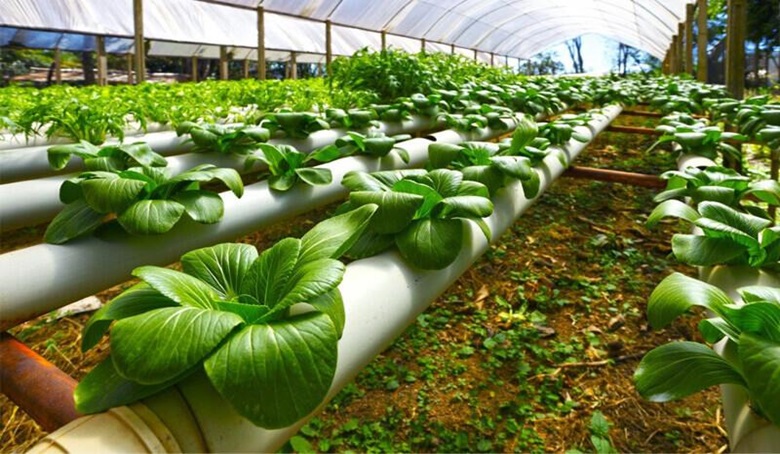With the growing population worldwide, the topic of producing enough food to sustain us all is growing as fast as the fields. Innovations in the field of agriculture are springing up all the time, making the future abundance of food available today. Farming is the backbone of our society, bringing healthy and tasty food to our tables each day, but it needs to grow and evolve to stay relevant in our modern world. Hydroponics is the latest branch of agriculture that has all the benefits of traditional farming and can offer much more.
1. Bigger harvests
The most important aspect of hydroponics is that it offers higher yields per square feet of space used than traditional farming methods. It allows for vertical stacking and uses less soil, space and energy. Because hydroponic systems can be used indoors, crops can be grown throughout the year, increasing the amount of food produced. Having access to all food types at any point during the year provides better health, immunity boosts, a diverse food plater and more choices for the customer.
2. Less space used
Traditional farmlands stretch on thousands of hectares of land. As the population grows, more farms are needed, but also more living space is required to accommodate the rising population. Hydroponics solves both of these as it can be grown vertically, in smaller compartments and plants are closer. The soil used for hydroponics is already rich in nutrients, so plants don’t need to struggle and grow their roots deeper or wider. The methods used in hydroponics farming are compact, making use of each inch of land available to squeeze out as many crops as possible.
3. Less water and energy usage
Traditional farming requires irrigation over large stretches of land, and complicated and expensive farm equipment which uses plenty of diesel and harmful chemicals to maintain the plants. On the other hand, efficient and modern hydroponic farming requires less water because evaporation does not happen.
Because hydroponics is mostly happening indoors, with good water management and distribution, less water is lost to evaporation and reckless spraying. Hydroponic hangars use electricity for light and heat, but it’s comparably far less than what traditional farming uses for its needs.
4. Less harmful chemicals
As traditional farming is happening in open fields, it has to combat pests, diseases and harsh weather conditions. Root and soil-based pests and diseases are common, with airborne pathogens increasing the difficulty of farming. To combat these, traditional farming has to resort to excessive amounts of pesticides and chemicals to ward off and protect their plants.
But the expense is transferred to the end consumer, and those chemicals can be harmful. Hydroponic farming also has to deal with pests and diseases but at a much smaller scale. Because hydroponic is being done in a controlled environment, using less soil and in isolated conditions, the aspects of farming are under direct control. Less soil means fewer earth-based diseases and pathogens, the air is filtered, and there is no direct exposure to the elements.
5. Hydroponics is less expensive
As the title suggests, using hydroponics is also less economically demanding than traditional farming. For a traditional farm, you’ll need a large parcel of land, several tractors with various specialisations, storage capacities, repairs, workers, pesticides, and watering, and that’s just the obvious part. Hydroponics does have high starting requirements, but it pales in comparison to traditional farming requirements.
Because of its benefits, it also has less long-term costs, as it’s sustainable and eco-friendly. With less space required, and the ability to grow your crops vertically and in layers, you’ll get more out of your available space. Your water bill goes drastically down, and you need no expensive tractors and farming equipment, as hydroponics is done completely differently, and harvest is practically done by hand.
The future is bright for our agriculture because we are securing the survival of our species through innovation. Breakthroughs and advances have made farming easier since the dawn of man. From back-breaking labour to ox-pulled carts and diesel-powered machines, farming has completely changed over the centuries. Hydroponics is the next logical leap that is making advances worldwide.
The only thing that remains constant in farming is food, as it always needs to appear on our table. And with dedicated farmers making it happen, we have lots to look forward to!

